- AdventHealth
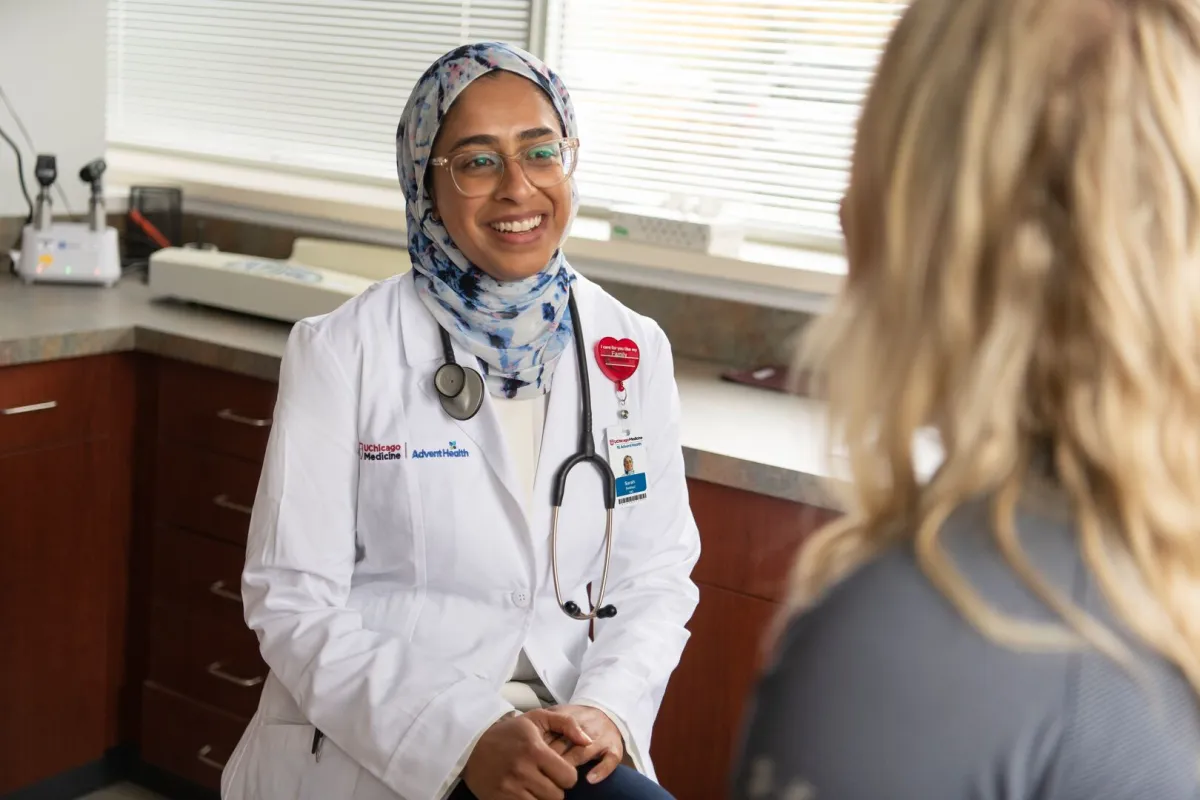
With the beginning of fall less than a month away, thoughts often turn to flu season, which typically starts in October in the U.S. In 2022, the season morphed into what many termed a “tripledemic,” with COVID-19 and Respiratory Syncytial Virus (RSV) sharing the infectious disease spotlight.
What are the chances that the upcoming season could pose a much more severe tripledemic? “It’s hard to say exactly how severe the season is going to be this winter,” says Vincent Hsu, MD, infectious disease specialist and infection control officer for AdventHealth. “It could be that one virus is predominant or that there’s a mixture of viruses.” The message for the public and practitioners, he says, is: If you don’t know what’s going to happen, you need to prepare for it.
Helping prepare for it this year are new RSV vaccines for those 60 and older and a monoclonal antibody shot for infants and toddlers at high risk for the disease. Though RSV is often thought of as a children’s disease, the Centers for Disease Control and Prevention (CDC) estimates that between 60,000 and 160,000 older adults in the U.S. are hospitalized each year for RSV, and as many as 10,000 die. As with the flu and COVID-19, those most at risk are the very young, the elderly, and those with weakened immune systems or chronic disease.

“There’s one thing that we know for certain: These viruses will come back,” Dr. Hsu says. We know both flu and RSV are seasonal viruses; although there have been variable spikes in COVID-19 throughout the past three years, it is altogether possible that this virus will also exhibit a seasonal pattern.”
As with hospitals across the country, AdventHealth has seen an increase in COVID-19 hospitalizations over the past couple of months, Dr. Hsu says, “but nowhere near where it was last year or even this past January. It’s not at crisis levels by any means.” Many cases have been mild and would not have required admission had it not been for some other factor or related issue.
According to the CDC’s COVID Data Tracker, there were 12,613 COVID-19 hospital admissions across the U.S. for the week ending Aug. 12 compared with 44,410 for the week ending Jan. 7. The tracker also includes weekly county-by-county admission levels.
“Even though COVID is less severe than it used to be, it isn’t what anyone would call a harmless virus,” Dr. Hsu says. “Neither is influenza, and neither is RSV.”
The new COVID-19 booster that is expected to be available in the coming weeks targets Omicron-descended variants, such as EG.5, which is believed to be largely responsible for the uptick in summer cases.
Though new strains may prove less severe, manifesting for some as nothing more serious than a cold, Dr. Hsu cautions, “We know that deaths still occur from COVID every day, and we want to do what we can to protect others, especially those who are very vulnerable.” And, he emphasizes, “you just don’t know how COVID may affect you. We need a few more years of good data to really understand how this virus behaves, mutations and all.”
“We know that deaths still occur from COVID every day, and we want to do what we can to protect others, especially those who are very vulnerable.”
For all three viruses, the rules of prevention remain the same: practice good hand hygiene, avoid touching your face, cover coughs and stay home if you’re not feeling well. As an additional measure, Dr. Hsu suggests that “if you have to go out, but have concerns you might be infectious, wearing a mask reduces the risk of spreading to others.”
In addition to those common-sense approaches to avoid transmitting the virus and thus helping to make the fall and winter a “safe respiratory season,” Dr. Hsu adds, “Take advantage of the vaccines that are available.”
August is also National Immunization Awareness Month, a timely reminder for checking the CDC immunization schedule to determine if you and your family are current on other vaccines.
As he considers the future regarding not only COVID-19 but other infectious diseases, Dr. Hsu says, “I do hope that there will be a permanent shift, one that’s not expensive or intrusive, in how we approach safety given our experience with the pandemic. An example would be continuing to ask questions like ‘do you have a fever or cough’ going into doctors’ offices. There are things we can do in consideration of others.”
Recent News

Local leaders, officials, and construction workers gathered today to commemorate a major milestone in the expansion underway at AdventHealth Daytona Beach: placing the final steel beam.
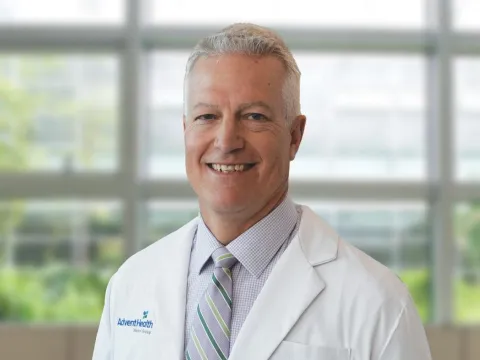
Dr. Jeffrey Keen, a board-certified orthopedic surgeon specializing in adult reconstruction, orthopedic surgery, robotic-assisted surgery, and sports medicine, has returned to AdventHealth Medical...
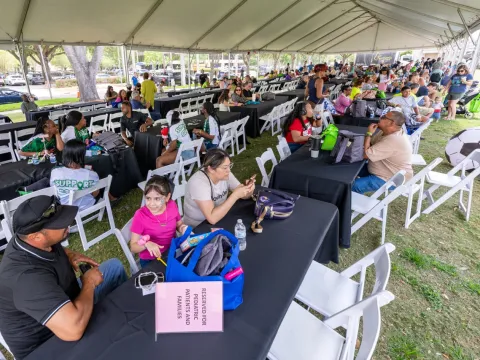
In recognition of National Donate Life Month, nearly 300 transplant patients and their families enjoyed AdventHealth’s 2025 transplant reunion.

According to the National Kidney Foundation, more than 101,000 people are currently on the organ transplant list in need of a new kidney. However, only about 17,000 transplants happen each year —...
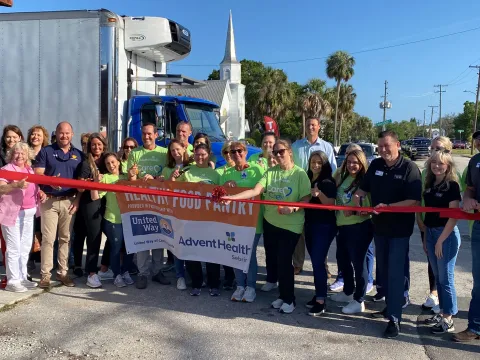
Leaders and volunteers from AdventHealth, United Way of Central Florida, Hands for the Homeless and the community worked together to distribute more than 9400 pounds of food to people in need.

The AdventHealth Board of Directors has appointed David Banks as the organization’s new president/CEO, effective immediately.

In life, Sophie Davis touched dozens of hearts. In passing, one of her organs could possibly save thousands of lives.
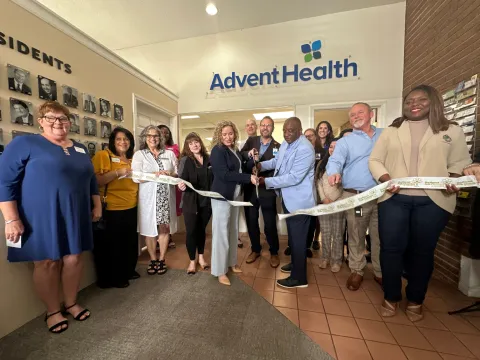
AdventHealth Heart of Florida leaders and members of the Northeast Polk Chamber joined community members for a ribbon cutting on a new addition to the Chamber’s office

As the days get longer and the weather warms up, people are eager to get back to their favorite outdoor spring activities and sports. This transition from winter to spring often leads to an increased...
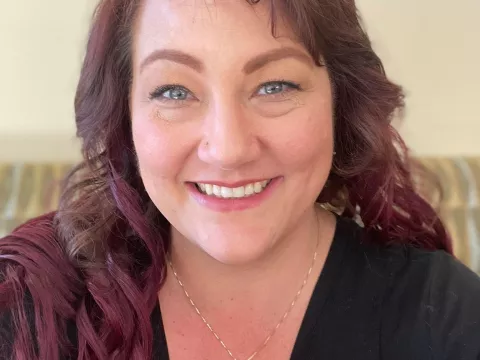
Marie Williams remembers being admitted to AdventHealth Parker on September 1, 2023, for colon resection surgery, but after that, things get hazy.

AdventHealth for Children is a nationally recognized children’s hospital and comprehensive care network caring for nearly 200,000 children annually.
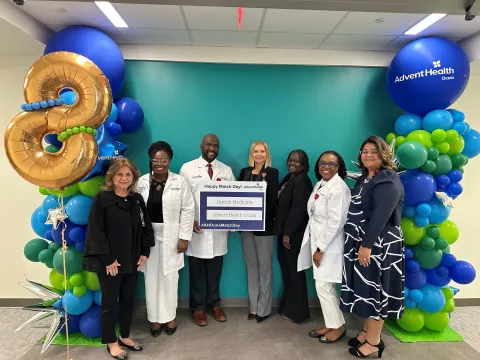
Eight new physicians are joining AdventHealth Ocala’s team to take their next steps to become fully licensed, board-certified family physicians.
